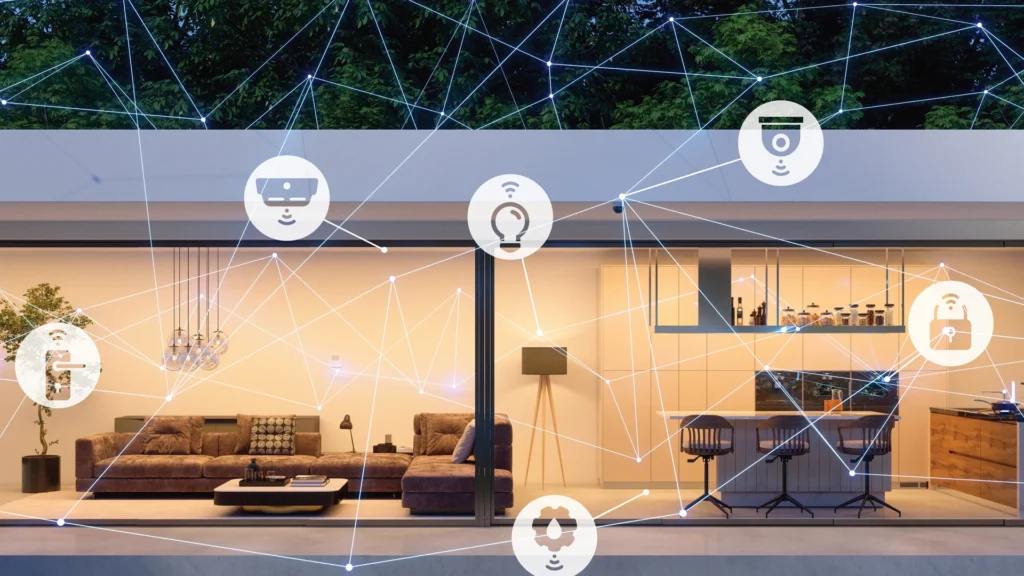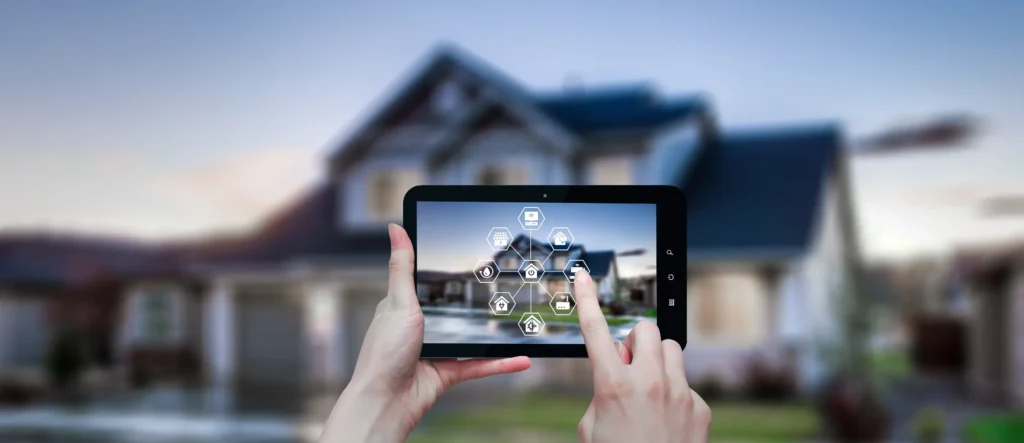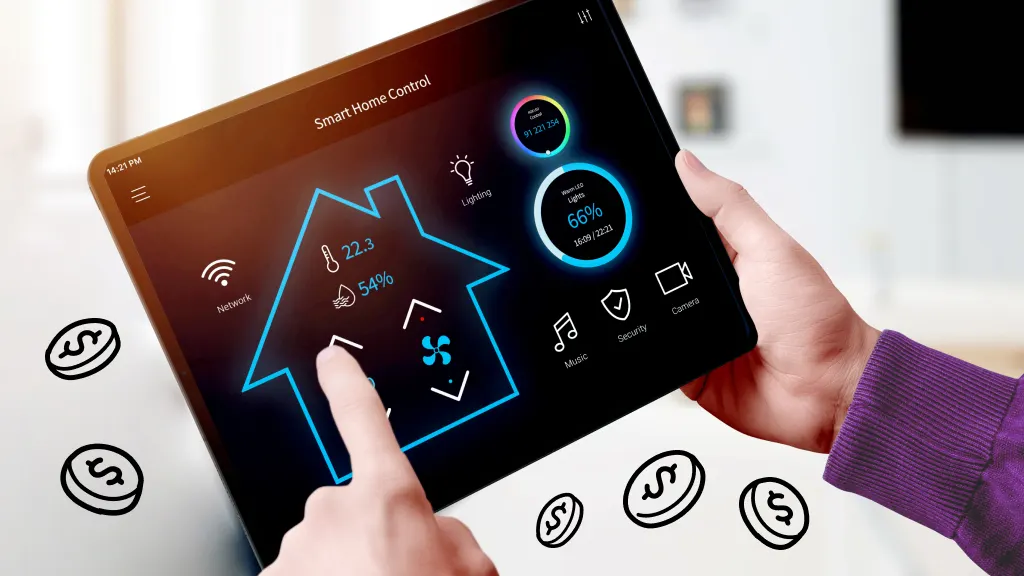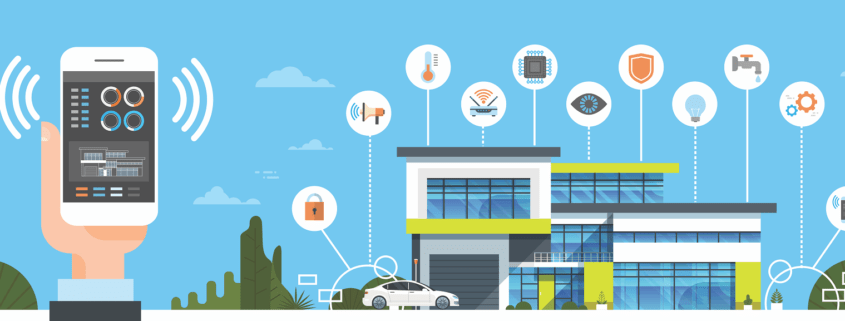What Is Smart Home Insurance?
Smart Home Insurance
Insurance is evolving as homes become smarter, and the term Smart Home Insurance refers to modern protection plans designed specifically for residences equipped with smart devices and automation systems. These insurance policies recognize the benefits and risks associated with smart home technologies, and adjust coverage, pricing, and incentives accordingly. In this comprehensive guide, we’ll explore the advantages, considerations, and best practices of Smart Home Insurance, helping homeowners understand why this tailored coverage is rapidly gaining traction.

What Is Smart Home Insurance?
Smart Home Insurance is a type of homeowners insurance that specifically caters to properties with Internet-of-Things (IoT) devices, home automation systems, and integrated smart technologies. This specialized insurance acknowledges that smart devices can reduce risk while introducing new vulnerabilities.
By offering incentives for installing smart sensors, water leak detection systems, smart locks, and security cameras, insurers encourage safer homes. As a result, homeowners often enjoy lower premiums and improved coverage.
At its core, Smart Home Insurance balances risk reduction through smart devices with the need for protection against new technology-based threats.
Smart Device Integration in Smart Home Insurance
Using smart devices is central to Smart Home Insurance offerings. Insurers often provide discounts when homeowners install smart smoke detectors, smart thermostats, water sensors, and security cameras.
- Smart smoke detectors can reduce fire-related claims.
- Water leak sensors can detect leaks early and lower flood damage.
- Smart locks and security cameras help deter burglaries.
These integrations make Smart Home Insurance not just a policy, but a proactive tool to enhance home safety.
How Smart Home Insurance Differs from Traditional Coverage
Traditional homeowners insurance protects against fire, theft, liability, and damage, regardless of the technology in the home.
Smart Home Insurance, on the other hand, rewards tech-savvy homeowners:
- Premium discounts for smart systems.
- Extended coverage—such as cyber liability for device hacking.
- Instant alerts and monitoring.
By recognizing the benefits of smart devices, Smart Home Insurance encourages safer and smarter living environments.
Benefits of Smart Home Insurance
Adopting Smart Home Insurance delivers multiple advantages for homeowners who invest in connected-home technologies.
Cost Savings Through Smart Home Insurance
One of the most attractive features of Smart Home Insurance is cost savings. Insurers often offer:
- Discounts for installing smart smoke alarms.
- Credits for smart water leak detectors.
- Lower rates for homes with monitored security systems.
By leveraging technology to reduce risk, Smart Home Insurance helps homeowners save money on premiums while enhancing safety.

Risk Mitigation in Smart Home Insurance
Smart Home Insurance isn’t just about savings—it’s about preventing loss before it happens. Smart sensors can detect issues early:
- Water leak detectors can stop damage to floors and walls.
- Smart thermostats can alert homeowners about heating system failures that might burst pipes.
- Security cameras can catch intruders in action.
By proactively detecting potential hazards, Smart Home Insurance helps reduce claim frequency and severity.
Enhanced Coverage Offered by Smart Home Insurance
Insurance policies tailored as Smart Home Insurance often include specialized coverage options:
- Cyber liability protection if a hacker accesses your smart devices.
- Tech breakdown coverage for failure of high-value smart systems.
- Identity theft and data backup services.
These additional protections ensure your smart home’s growing network is insured against evolving threats.
Key Features of Smart Home Insurance
Here are the core features that define Smart Home Insurance policies:

Premium Discounts & Rewards with Smart Home Insurance
Insurance providers want to encourage the adoption of risk-reducing technology. In Smart Home Insurance, that means offering:
- 5–20% off premiums for smart smoke alarms, leak detectors, or monitored fire alarms.
- Per-incident credits for water sensors after claims.
- Loyalty bonuses for maintaining smart systems long term.
The result? Homeowners save money while improving home safety measures.
Monitoring & Alerts Included in Smart Home Insurance
Many smart home policies include real-time alerts:
- If a water sensor detects a leak, both homeowner and insurer are notified immediately.
- A security alarm or door sensor triggers instant alerts.
- Smart CO₂ and smoke detectors share instant warnings when smoke or carbon monoxide levels rise.
By providing early alerts, Smart Home Insurance ensures timely intervention and minimized damage.

Cybersecurity & Smart Home Insurance
Smart home devices bring convenience—and risk. Cybercriminals can exploit insecure systems. Hence, Smart Home Insurance often includes:
- Cyber liability coverage if hackers gain access and sabotage systems.
- Digital support or identity recovery services.
- Secure device guidelines and monitoring.
Insurers are adapting, and Smart Home Insurance ensures connected homes don’t become vulnerable homes.
Choosing the Right Smart Home Insurance
If you’re considering Smart Home Insurance, here’s how to weigh your options and pick the best plan.
Assess Your Smart Home: Smart Home Insurance Requirements
Start by evaluating what smart tech you already have—or plan to install. Typical qualifying devices for Smart Home Insurance include:
- Smart smoke and CO₂ detectors.
- Smart thermostat systems.
- Water leak and freeze sensors.
- Monitored burglar and glass-break alarms.
- Smart locks, cameras, and doorbells.
Knowing your device setup helps you choose an insurer that aligns rewards with your system.
Compare Coverage Options in Smart Home Insurance
Not every Smart Home Insurance policy is the same. Compare features such as:
- Cybercrime protection.
- Tech breakdown cover.
- Smart device replacement coverage.
- Deductible waivers for certain device-triggered claims.
Make sure the policy aligns with both your smart devices and risk profile.
Read Fine Print: Smart Home Insurance Policy Details
Whenever purchasing Smart Home Insurance, pay attention to:
- Definitions of “smart device” eligibility.
- Requirements for professional installation or monitoring.
- Notification protocols—how quickly must a sensor report to avoid claim denial?
- Limits on discounts, claim frequency caps, and device coverage amounts.
Understanding policy terms ensures you meet qualifications and avoid surprises down the line.

Installing Smart Devices for Smart Home Insurance
Smart devices must be installed and managed properly to qualify for insurance discounts and coverage.
Best Practices for Smart Home Insurance Device Setup
Follow these tips to ensure your devices provide maximum benefit in your Smart Home Insurance policy:
- Use professional installation for systems like monitored burglar alarms.
- Register devices with your insurer through their portal or app.
- Maintain batteries and firmware updates.
- Monitor devices live or self-monitor via app alerts.
- Document installation with photos and dates to support claims.
Early detection, maintenance, and monitoring are key to unlocking Smart Home Insurance benefits.
Integrating Devices for Smart Home Insurance
Automation is part of the appeal of smart homes and Smart Home Insurance policies:
- Water sensors that shut off valves automatically when leaks are detected.
- Smoke alarms that silence HVAC systems to slow fire spread.
- Smart lighting that deters intruders with home simulation during vacations.
The more your devices work together, the more insurers see your home as lower risk—resulting in stronger rewards.
Cyber-Hygiene and Smart Home Insurance Compliance
Connected systems require vigilance. To stay eligible for Smart Home Insurance perks:
- Use strong, unique passwords for each device.
- Update firmware regularly.
- Avoid default credentials.
- Consider installing a smart hub with active threat monitoring.
Proper device security not only protects you, but also safeguards your Smart Home Insurance benefits.
H2: Real-Life Examples of Smart Home Insurance in Action
To see Smart Home Insurance at work, let’s examine a few scenarios:
Water Leak Prevention with Smart Home Insurance
Andi installed a smart water sensor under her washing machine. Last winter, the sensor detected a slow leak at 3 a.m., automatically shutting off the main valve and alerting her and the insurer.
She avoided severe flood damage, and her claim was processed smoothly thanks to proactive coverage under her Smart Home Insurance.
Smart Smoke Detection & Smart Home Insurance
After installing linked smart smoke detectors and a smart thermostat, Ben’s system detected a small kitchen smoke event. The thermostat shut off the HVAC to prevent smoke distribution, and his insurer reduced the deductible under his Smart Home Insurance plan.
As a result, his costs and interior damage were minimal.
Deterrence of Theft with Smart Home Insurance
Cara’s home uses smart cameras, doorbell alerts, and motion sensors. When a suspicious individual approached her back door, she received a live video alert and contacted authorities.
Her insurer recognized her proactive risk reduction and rewarded her with a refund of part of her premium thanks to Smart Home Insurance incentives.
Common Myths About Smart Home Insurance
Let’s debunk misconceptions that often arise around Smart Home Insurance.
“My Smart Devices Don’t Affect Insurance” — Not True
Many homeowners don’t realize that adding smart smoke, water, and security systems can significantly lower insurance premiums.
Smart Home Insurance exists precisely to reward such technology investments.
“Smart Home Insurance Is Too Complex” — It’s Not
While policies differ, insurers typically provide clear checklists: install qualifying devices, register them, and maintain them.
You don’t need to be a tech guru to enjoy Smart Home Insurance benefits—just maintain devices and stay compliant.
“My Data Is Not Covered” — That’s Changing
Older policies never considered hacking or smart-device failures. But Smart Home Insurance now often includes cyber liability, tech breakdown coverage, and identity theft protection—addressing today’s smart-home realities.
Future of Smart Home Insurance
As smart home adoption grows, so will the evolution of Smart Home Insurance.
Telematics & Continuous Monitoring in Smart Home Insurance
Insurers are exploring continuous monitoring:
- Real-time leak detection tied to thermostat systems.
- Activity sensors that detect unusual patterns.
- Predictive analytics that alert homeowners to risky settings.
This means Smart Home Insurance is heading toward dynamic pricing based on actual device data—not just a one-time discount.
Partnerships Between Smart Brands and Insurers
Major smart device manufacturers are collaborating with insurers. For example:
- Locks that register with insurers for discount eligibility.
- Thermostats that offer real-time alerts and premium credits.
These partnerships make Smart Home Insurance more seamless and integrated.
AI & Predictive Risk Reduction in Smart Home Insurance
Artificial intelligence is the next frontier:
- Systems learning behavioral patterns and flagging anomalies.
- Predicting when devices are likely to fail.
- Providing homeowners with proactive suggestions to prevent damage.
In this future, Smart Home Insurance becomes a dynamic service, not just a safety net.
Is Smart Home Insurance Right for You?
Here are some considerations to determine whether Smart Home Insurance is a good fit:
Financial Considerations for Smart Home Insurance
Estimate your savings:
- Typical 5–15% premium discounts for smart smoke and leak protection
- Bonus credits for verified, monitored devices
- Potential cost savings from prevented damage
If you’ve already invested in smart devices—or plan to—the expense of the policy may be outweighed by savings and protection.
Safety & Lifestyle Fit with Smart Home Insurance
Do you want peace of mind and proactive alerts? Smart homeowners who prioritize control, notifications, and home safety often benefit most from Smart Home Insurance.
Technical Readiness for Smart Home Insurance
If you’re comfortable installing, managing, and maintaining smart systems—or willing to hire a professional—you’re ready. Insurers expect devices to function correctly to validate Smart Home Insurance benefits.
Tips to Maximize Your Smart Home Insurance
Want to get the most out of your policy? Follow these tips:
- Bundle smart devices with your insurer—install smoke, leak, and security sensors using recommended brands.
- Document and register each device during installation—take photos, record serial numbers.
- Maintain and test monthly—ensure batteries, firmware, and connectivity are functioning.
- Respond quickly to alerts—don’t ignore notifications; insurers may track response time.
- Share system upgrades—keep your insurer informed of new devices or software updates.
By following these steps, you reinforce the value of Smart Home Insurance and optimize savings and protection.
Final Takeaways on Smart Home Insurance
Smart Home Insurance represents the future of homeowners protection. By integrating smart sensors, automated systems, and proactive risk monitoring, these policies offer safer living, lower premiums, and expanded coverage options including cyber protection.
If you’ve equipped your home with smoke alarms, leak detectors, smart locks, or cameras—or plan to—Smart Home Insurance can save you money, safeguard your property, and provide peace of mind. As technology advances, insurance policies will evolve too—becoming more integrated, predictive, and personalized.
Make sure to:
- Inventory your smart devices.
- Compare insurers and discounts.
- Maintain and register your systems.
- Consider future integrations like AI monitoring.
Smart Home Insurance isn’t just a policy—it’s a smarter way to protect your smart home, enhance security, and ensure your investment grows with technology.

